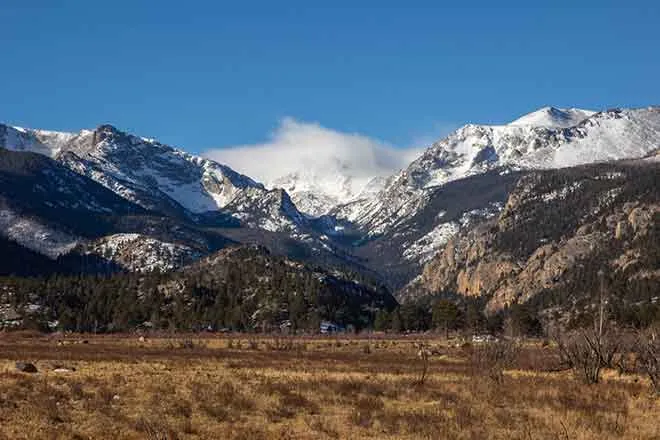
Colorado offers streamlined process for broadband connectivity using CDOT property
Colorado communities and service providers looking to improve broadband access will have a new, accelerated, and discounted option to help expand high-speed internet access throughout the state. The Colorado Transportation Commission approved a fee schedule to facilitate access to CDOT rights of way - the land owned by the state alongside its roadways - for the purpose of third parties installing fiber and expanding broadband.
This adopted fee schedule, more than 90 percent lower than the version initially proposed, makes CDOT property available for broadband development in accordance with Gov. Polis’s 2022 Executive Order to accelerate broadband in Colorado and ensure people have access to the internet in every corner of the state. The fee schedule – the lowest of Colorado’s surrounding states and southwestern neighbors – comes after months of engagement with local governments, industry members and community members, and is aligned with the bipartisan Senate Bill 22-083, sponsored by former Senator Don Coram and State Representatives Marc Catlin and Susan Bird.
“Just as our transportation system creates vital connections for all Coloradans, we all need the modern connectivity of broadband to fully access opportunities and services. The Transportation Commission has heard the perspectives of local communities throughout the state as well as industry concerns, and the proposal that we approved today offers greater opportunities for broadband development, competes favorably with our neighboring states on costs, and meets the state’s existing legal obligations to care for the public land under our responsibility,” said Transportation Commission Chair Karen Stuart.
The new fee schedule charges an annual property use surcharge as well as a one-time upfront fee to cover permitting costs, set as low as possible to only cover some administrative costs. This follows the methodology used by the United States Forest Service for access to federal lands, which means that Colorado’s structure uses a setup that is familiar to the broadband industry. This will also make access costs in Colorado lower than in neighboring states. In scenarios modeled by CDOT staff, the costs for broadband companies to access similar amounts of land for fiber optic lines are less than 1/10th of the cost in Colorado compared to Arizona and New Mexico, 1/50th of the cost compared to Utah, and less than or equal to costs in Nevada.
“Underserved communities have an urgent need for improved broadband access, and today’s access fee plan offers another option for high-speed internet development throughout Colorado. CDOT’s right of way offers critical access to many of these communities, and so it is particularly important for this access proposal to move forward and offer these options as soon as possible. The fee structure works to strike a careful balance that reduces private sector costs and preserves assets owned by taxpayers, and we are committed to supporting these objectives so that more Coloradans can access broadband,” said Transportation Commission Vice Chair Terry Hart.
The approved proposal followed an extensive public process throughout 2023. Thanks to extensive feedback and dialogue, CDOT made substantial revisions to its initial draft proposals, ultimately resulting in a fee schedule that is more than 90 percent lower than initial estimates. CDOT’s Fiber Optic Development staff delivered public briefings to the Transportation Commission in February, March, April, May, and November, and the commission convened a fiber committee that held meetings from May through August. CDOT staff also briefed the state legislature, presenting to the Joint Technology Committee on August 28 and the Joint Budget Committee on December 8. Those public meetings, along with numerous meetings with private industry throughout the year, led to the updated access fee schedule’s public release in early November, ahead of its approval today.
The fiber access fee schedule offers internet service providers an option in addition to the existing option under Colorado’s Public-Private Initiatives Act. Under this state law, CDOT may consider unsolicited proposals that allow non-exclusive use to CDOT right of way and/or leasing of excess CDOT dark fiber (dark fiber is an industry term that refers to fiber optic strands that are not currently in use).
Broadband providers will pay $0.10 per foot of fiber optic line in urban counties - with populations above 200,000 people - and $0.03 per foot in rural counties, as well as a one-time charge of $0.05 per foot to cover permitting costs. Urban counties include Adams, Arapahoe, Boulder, Denver, Douglas, El Paso, Jefferson, Larimer, and Weld.
“Fast, reliable, and affordable broadband service is critical for participation in our modern economy. To create a Colorado for all, equitable online access to educational opportunities and government services is imperative. To accelerate Colorado’s economic recovery and continue to position Colorado as a top state to live and work in, we must invest in broadband infrastructure,” the Executive Order states.

















